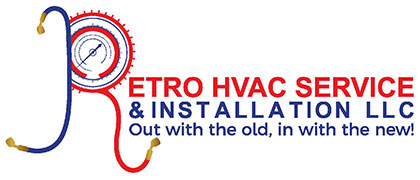Buying your first home is thrilling. You’re likely trying to keep track of numerous details to ensure you’re making the right choice. We believe that gaining insight into your future HVAC system is crucial. The property’s HVAC system represents a significant investment and potential source of long-term costs, so being thorough is important for first-time homebuyers.
In this guide, we’ll outline seven tips for discovering all there is to know about a home’s heating and cooling setup. And if you want a deeper opinion from the pros, don’t hesitate to contact Retro HVAC Service & Installation. Our staff can share details about your options with industry insights you won’t find elsewhere.
1. What Type of HVAC System Is It?
Start by determining what specific HVAC system the home features. Furnaces generally last longer than air conditioners, and some of the latest types of HVAC equipment like heat pumps feature average life spans that are impressively long. Tracking down the make and specific model provides a clear understanding of how much maintenance it will require.
2. What Is the Current System’s Age?
It also helps to learn how old the HVAC system is when you’re considering a new home. For the most part, HVAC systems tend to run for about 10-12 years. Having the knowledge of when it was installed helps you plan for possible repair needs or considerations if it might eventually stop working. Older systems are at a higher risk of problems, so fiscal planning for a replacement unit could be necessary sooner than you thought.
3. Is the Warranty Active?
Don’t forget to look into whether the HVAC system is covered by a warranty. If it is, that’s great news because it can lower maintenance expenses. HVAC warranties often cover parts and labor, but specifics will vary. Make sure you go over any terms that seem confusing to ensure you understand your coverage and potential out-of-pocket costs.
4. Has the System Ever Been Professionally Serviced or Maintained?
Next, examine the maintenance history of the HVAC system, if this kind of history is available. This service history can reveal if there have been regular problems or how often maintenance is performed. Ask about records for key tasks like filter changes, which is a positive sign indicating regularly scheduled tune-ups.
5. Do You Know Its Energy Efficiency Ratings?
Selecting a system with great energy efficiency means smaller utility bills and less of an impact on the environment. Look for the seasonal energy efficiency ratio (SEER) ratings for air conditioning and the annual fuel utilization efficiency (AFUE) for furnaces. The higher the SEER rating, the more efficient the cooling over the whole season, while higher AFUE ratings illustrate that the fuel is more effectively burned for useable heat.
6. Did You See Any Problems During Your Inspection?
Even without experience in HVAC systems, it’s still a good idea to check out the HVAC system on your own. Watch closely for any concerning items that haven’t been mentioned by the seller. This can mean bizarre noises, spots with uneven heating or cooling and attempts to hide any obvious damage.
7. Have You Asked Your Local HVAC Professional?
If you’re still hesitant to make an offer because of the condition of the HVAC system, it’s beneficial to get input from trained HVAC technicians. They will be much more likely to catch things you might not, such as refrigerant leaks, damage to the wiring or inefficient ductwork.
A Chat with Retro HVAC Service & Installation Simplifies Your Home-Buying Journey
Selecting your first home is meant to be a joyful event, and Retro HVAC Service & Installation wants to ensure yours is too. Reach out with us at 267-485-6219. We can talk about how our HVAC services ease your mind, giving you what you need to dive into home-ownership with confidence.
